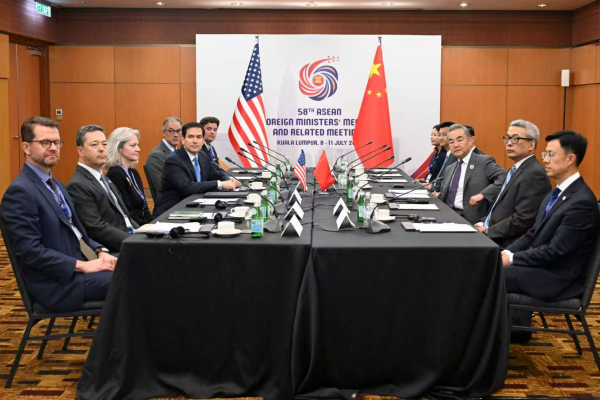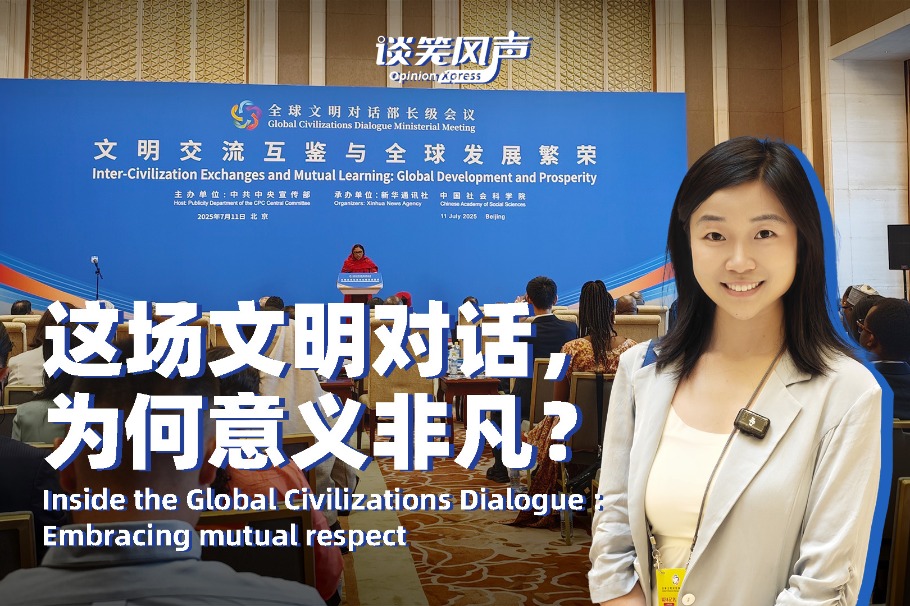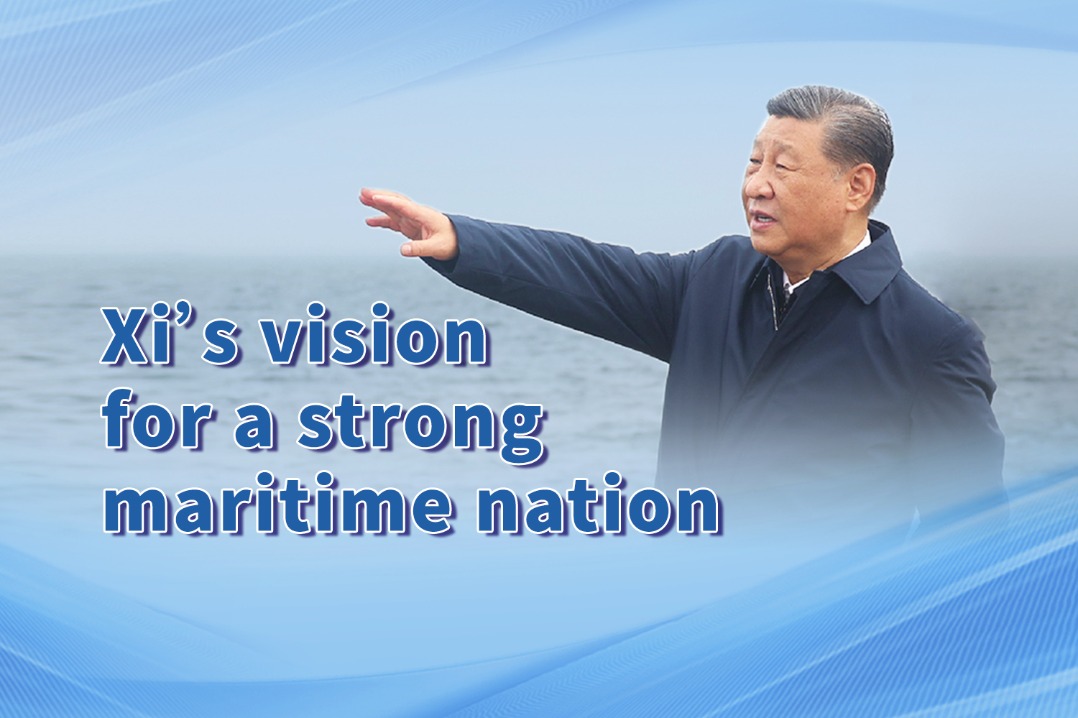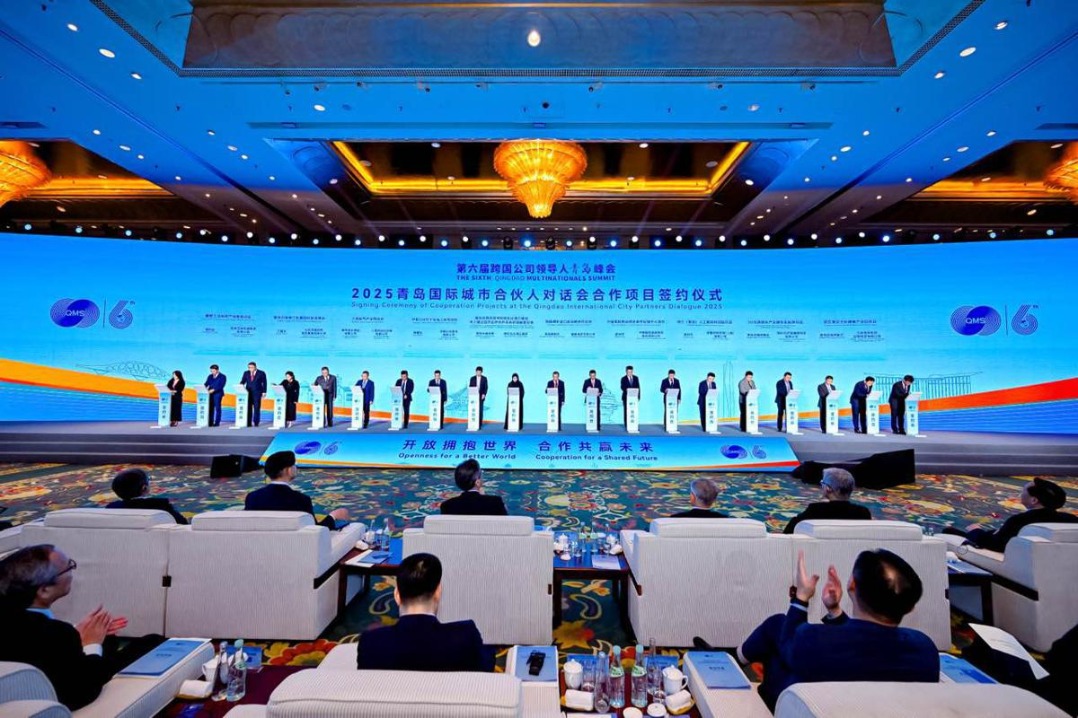Finding right way to get along with each other serves common interests of China and US: Editorial flash


The first in-person meeting between Foreign Minister Wang Yi and US Secretary of State Marco Rubio in Kuala Lumpur, on the sidelines of the series of gatherings hosted by the Association of Southeast Asian Nations on Friday, was reportedly positive and productive.
Both of them recognized the imperative to translate the common understanding agreed by the two heads of state into concrete actions, steering the world's most consequential bilateral relationship toward stable ground. Their assessment of the talks as "positive, pragmatic, and constructive" signals a mutual understanding that sustained engagement, not confrontation, serves both nations' interests and global stability.
That includes not only strengthening communication and exchanges at all levels and taking advantage of the various extant dialogue channels and mechanisms, but also exploring areas of potential cooperation, while properly managing differences.
Dialogue and cooperation are the right path, while coercion and pressure will lead nowhere, just as the hard-won outcomes of their trade talks in Geneva and London have shown.
As the two countries have not only broad areas for cooperation and coordination, but also considerable differences they need to handle, how they fare in this endeavor will depend on whether the US side can adopt an objective, rational, and pragmatic view of China.
Wang stressed that the US policy toward China should seek peaceful coexistence and win-win cooperation, and it should treat China in an equal, respectful manner with the aim of sustaining a mutually beneficial relationship. Despite the stabilizing signs of bilateral ties in recent months, more needs to be done to improve the relations between the two countries.
To that end, Washington needs to stop regarding relations as a zero-sum game. It should work with China to strengthen and expand their cooperation based on mutual respect and an equal footing, recognizing that is in the best interests of both countries. China's loss will by no means be the US' gain.
It is to be hoped that the Kuala Lumpur meeting between Wang and Rubio can help pave the way for more constructive exchanges between the two countries. Their differences should not be allowed to define their relations, but reasons for them to strengthen dialogue and deepen mutual understanding.
Improving Sino-US relations is in line with the expectations and interests of the world. A better relationship would offer more certainty, stability and predictability at a time when all three are in short supply.
Straightening out their ties would also enable China and the US to explore ways to find common ground to jointly respond to some global challenges. That would certainly be a welcome development.


































